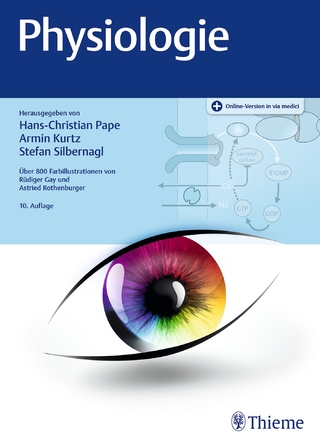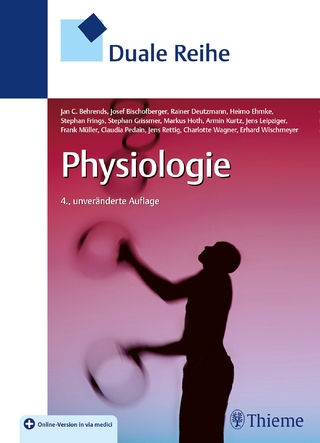
Aging
Academic Press Inc (Verlag)
978-0-12-823761-8 (ISBN)
Contributions from an interdisciplinary panel of experts cover such topics as the biology of aging to physical activity, nutrition, psychology, pharmacology, health care, social care and urban planning.
Paulo J. Oliveira, PhD received his Bachelor of Science in Biochemistry and his PhD in Cellular Biology from the Universidade de Coimbra, Portugal. Dr. Oliveira spent more than three years working at the Medical School of the University of Minnesota, Duluth, USA, where he collaborated with several researchers and contributed to the publication of several peer-reviewed manuscripts. Besides research, Dr. Oliveira is often involved in teaching at the Department of Life Sciences, University of Coimbra, as well as in other Universities in Portugal and elsewhere. He has maintained a consistent primary role in the organization of national and international scientific meetings and is currently the President of the European Society for Clinical Investigation. He has over 200 peer-reviewed publications and is currently one of the most well-known researchers in this area, with collaboration with researchers in Europe, Africa and in the USA. He has also been a reviewer for more than 40 different scientific journals and over 10 different funding agencies, including the European Commission (Research Executive Agency) and the Portuguese Foundation for Science and Technology. João O. Malva, PhD received his PhD in Cell Biology at the University of Coimbra 1997. He is a Principal Investigator at the Faculty of Medicine of the University of Coimbra (FMUC). He is the Director of the Project Management Unit and Science Coordinator as well as the Secretary of the Assembly at FMUC. Dr. Malva is also the Vice-Director of the Interdisciplinary Research Institute and the Science Coordinator for the consortium “Ageing@Coimbra – European Reference Site for Active and Healthy Ageing. He is a past President of the Portuguese Society for Neuroscience (2007-2011). His research activity has been focused on Neuroscience with relevant contributions in areas such as neuroprotection, neuroinflammation and neurogenesis in brain repair. He has significant international visibility, including a nomination as full member to EDAB (European DANA Alliance for the Brain).
Section 1. The Societal Burden of Aging
1. Aging at a global level
2. The financial and economical burden of aging worldwide
3. Flagship initiatives for healthy living and active aging in Europe
4. Flagship initiatives for healthy living and active aging in Africa
5. Flagship initiatives for healthy living and active aging in North America
6. Flagship initiatives for healthy living and active aging in Asia and Oceania
7. Flagship initiatives for healthy living and active aging in Central and South America
Section 2. The Biology of Aging
8. A metabolic and mitochondrial angle on aging
9. Intracellular communication and aging
10. Genomic instability and telomere attrition
11. Cellular senescence during aging
12. The epigenetics of aging
13. Disrupted cellular quality control mechanisms in aging
14. Deregulated nutrient sensing in aging
15. Stem cells fitness and aging
16. Programming of early aging
Section 3. Aging-related physiology, disease and prevention of aging-related diseases
17. Adherence to therapy and polymedication
18. Frailty and cognitive decline
19. Cardiovascular aging
20. Aging-related neoplasia
21. Inflammation
22. Geroscience: An unifying view on aging as a risk factor
23. Building healthy aging
Section 4: The Future and Innovation in Aging
24. The future of innovation in aging
25. Machine learning in the context of better healthcare in aging
26. The knowledge and research in aging for the future
27. The future of integrated care in aged individuals
28. Moving from reactive to preventive medicine
29. Personalized medicine: will this work for decreasing aging-related morbidities
30. Anti-aging interventions: myths and realities
| Erscheinungsdatum | 03.10.2022 |
|---|---|
| Zusatzinfo | 100 illustrations (20 in full color); Illustrations |
| Verlagsort | San Diego |
| Sprache | englisch |
| Maße | 191 x 235 mm |
| Gewicht | 1650 g |
| Themenwelt | Medizin / Pharmazie ► Medizinische Fachgebiete ► Geriatrie |
| Studium ► 1. Studienabschnitt (Vorklinik) ► Physiologie | |
| Naturwissenschaften ► Biologie ► Humanbiologie | |
| ISBN-10 | 0-12-823761-9 / 0128237619 |
| ISBN-13 | 978-0-12-823761-8 / 9780128237618 |
| Zustand | Neuware |
| Haben Sie eine Frage zum Produkt? |
aus dem Bereich


